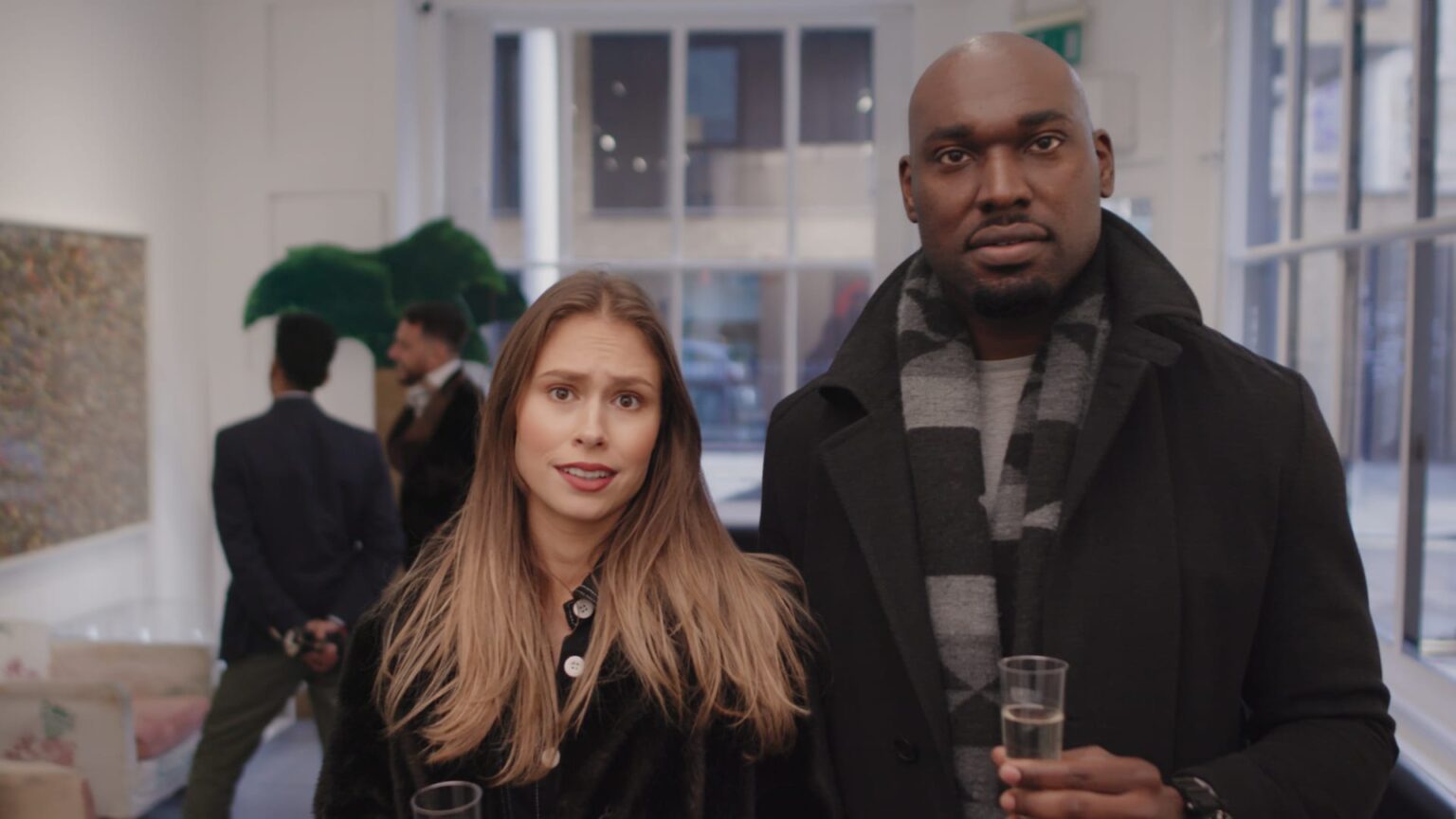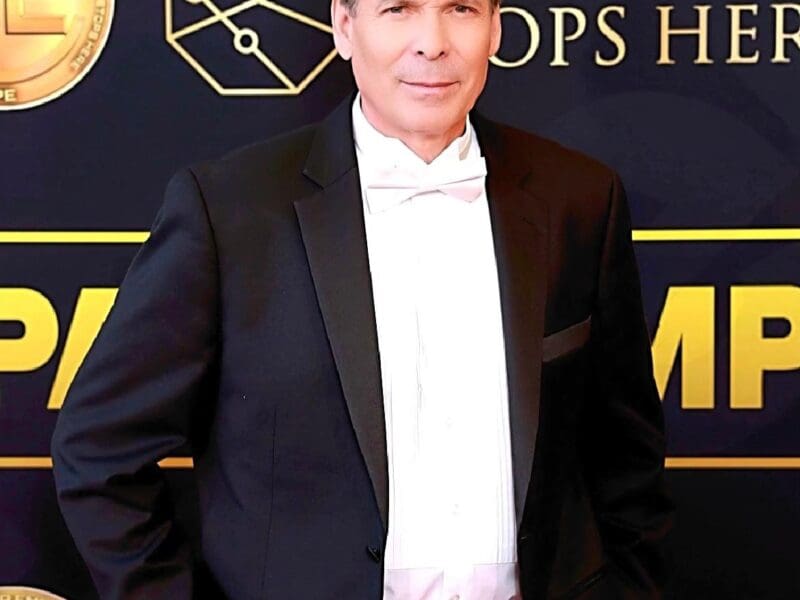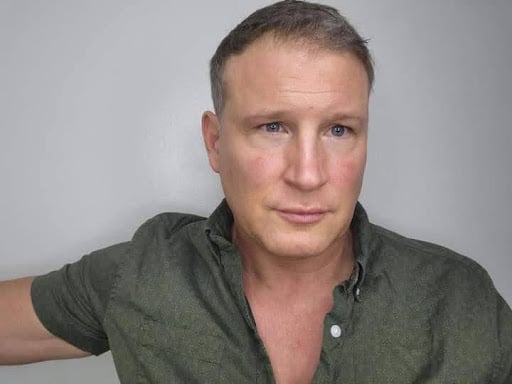
Get to know ‘On the Other Foot’ director Fredi Nwaka
Fredi Nwaka has plenty to say. On the Other Foot is the latest release from the writer/director, and the film tells the story of a racist London cab driver who’s suddenly forced to reexamine his views when his daughter starts dating a Black man. Things take a turn for the surreal when the cab driver wakes up one morning to discover that he now appears Black…
Nwaka was inspired to make the film after experiencing the murder of George Floyd and the global Black Lives Matter marches. Grim as the inspiration may be, however, On the Other Foot uses humor to make comments about the current state of race relations and inequality throughout the world.
Film Daily had the honor of sitting down with Fredi Nwaka to discuss his filmmaking process, his approach to storytelling, and his outlook on the world at large. Here’s what he had to say:

Photo credit: Ariel Artu
Tell us about your history in directing. How did you start your journey?
My history as a director started with a film called Men Lie Women Lie which I made with a good friend of mine called Ben Densac. It was a short film based on a true story and to be honest, it wasn’t too bad for a director who had no experience in film making if I do say so myself.
Who were your biggest filmmaking influences growing up?
To be fair I wasn’t really into film growing up. I was more into music as I had always wanted to be a rapper but if I look at some of my favourite films as a youngster they would have to be Star Wars, The Wizard of Oz and Clash of the Titans. I also had a thing about horrors and one of my all time favourites has got to be The Omen. It’s on my list to make a horror movie.
How did you come up with the idea for your new film, On the Other Foot?
I came up with the idea of On the Other Foot after the untimely death of George Floyd in the US and the Black Lives Matter marches. I wanted to do something that would strike deep and continue long after all the marching and chanting died down. Something that could be part of legacy and hopefully not only influence the minds of many but also provoke change for years to come.
The film handles heavy themes with a comedic tone. What made you decide to present these topics with humor rather than grim seriousness?
Racism is a very touchy topic to approach and can be a trigger to many. I decided to mix the comedy and serious elements to allow people to watch it without taking it so seriously. The hard hitting message is still there however it’s more digestible when delivered in a subtle comical way. I can honestly say I will be surprised anyone finds the film offensive.
Was it tricky to alternate between the serious moments and the sillier ones?
It was quite easy to alternate between the comical and serious elements as there is humour of some sort in some of the deepest and most controversial things that happen to us on a daily basis. It’s just down to people’s perspectives and how they see things. I want people to take the film’s serious issues with a pinch of salt while watching and then reflect later when the dust settles.

Photo credit: Ariel Artu
Do you feel a responsibility to promote a positive message in your work?
I think all filmmakers have a duty of care when it comes to the content they put out as we all know media, especially visuals have a strong influence on many, especially young people. I try to make films that have a message or a strong moral compass so that they are not just bubblegum, popcorn and fizzy drink moments but more films that will promote change, self analysis and at the very least, self reflection.
How did On the Other Foot differ from other projects that you’ve directed?
I have directed 7 short films and 3 features. OTOF is different from all my other films in not just the obvious fact which is the topic but also it’s the only one that was made under the challenging conditions of a pandemic.
Since you have experience as both a writer and director, which role do you prefer?
I write and direct films and find it hard to choose which I prefer but if I had to choose I would say directing as I get the chance to bring scripts to life. What once lived in the mind or on a piece of paper is now something to be enjoyed and watched by many.
Do you find it easier to write and direct stories that you have a personal connection to?
It’s always easier to write and direct stories which have some personal attachment. Especially when you can draw on experiences to help shape the scenes, characters etc. I grew up in Deal, Kent in the early 70s and for some time I was the only black person in the town. I struggled with identity , thinking I was white even though I had black skin. These thought processes and many experiences throughout my life really helped with the writing of OTOF.
On the Other Foot was shot at the height of the pandemic. What were the biggest challenges you faced during production?
Covid did make things challenging as this film was shot during lockdown but we were able to keep everyone safe. The hardest parts were the crowd scenes which had to be shot in such a way to make it look like there were actually more people then there were.

Photo credit: Ariel Artu
What has been your greatest professional success?
It’s hard to say what has been my greatest professional success as over the years I have won so many awards. If I had to choose, I would say it’s becoming the only British Rapper to be signed to Wu Tang (Wu Tang International) but in the world of film, the fact that I have managed to carve out a career in the film industry with no help. I not only taught myself how to write, direct and produce films but also how to attend the market place and sell films.
What about your biggest failure? What did you learn from it?
My biggest failure has got to be to not value time. Time is the one commodity we cannot get back and so we should never waste it. We always think we have more time and so sometimes delay and procrastinate. My mother, may she rest in peace, used to call me “I will, I will” as that was my response to everything if I hadn’t done it. When she passed away I vowed to turn that to ” I am, I am” and things have been flourishing ever since. Thanks mum.
What is the main theme you want audiences to take away from On the Other Foot?
Racism has been around forever and probably always will be. Everyone was marching after George Flyodd was killed in the name of BLM and it got me thinking, what happens afterwards, when it all dies down. I wanted to create something that was easy to digest but would also be a part of a legacy for people to watch and learn from long after people’s voices had stopped. If I can help change one mindset or influence one person’s perception in a positive way then surely that can’t be a bad thing.
The film has drawn comparisons to the Melvin Van Peebles classic Watermelon Man. Did it influence the film at all, and if not, what do you think of the similarities?
As soon as I put the poster out I received a few calls and messages that had compared the concept to Watermelon Man and to be truthful, at the time of making and completing OTOF I had never heard of the film. Having watched it after, it is a great honour for people to have made the comparison. I just hope it gets the same respect and love.
You run the production company Are We Dead Yet Films. What inspired the title of the company?
My film production company Are We Dead Yet prompts us to ask a question. If we are not dead then we are alive and therefore should make use of every second we are breathing. That’s what I intend to do and hopefully encourage others to do the same through bringing stories to life.

Photo credit: Ariel Artu
What would you say sets Are We Dead Yet Films apart from its peers?
Are We Dead Yet Film aims to make trail blazing original concepts. My previous film She’s the One/ Loves Spell was the first British romantic comedy with two black lead actors, written and directed and produced by a person of colour. We have had dogs and cats who can speak English, Aliens who look like humans, Men who know what women want etc. but never has the UK had a film where a racist man turns black. Again it’s a UK first.
Have you worked with mentors in the past? How would you recommend people go about finding them?
I have never worked with mentors in film and would not know where to find one so cannot help with this I’m afraid. The only mentors I know are making mistakes and trial and error. lol
Can you tell us about any upcoming projects?
I have several films on my slate but the most imminent is a film executive produced by Peter Andre, working title, Jafaican, a TV show being produced out in Canada with Blue River Productions called Monsta and I am also directing a thriller I wrote called Father Forgive Me for Cine House here in the UK. Lots of exciting projects. I am also working with XL films to produce and star in an action packed film early next year.
What advice do you have for aspiring filmmakers?
My biggest advice to all filmmakers is to keep going. Don’t make films, tell stories. Believe in yourself and follow your dream, no matter how big or small that may be.







